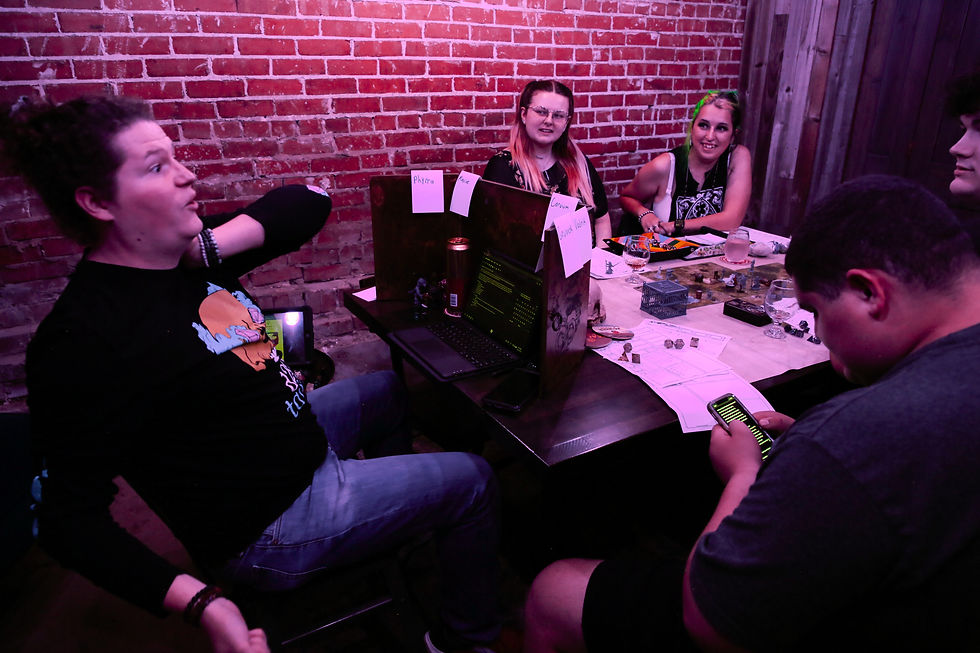Therapeutic Gaming: How Role-Playing Games Support Child Wellbeing
- Melissa Strickland
- Sep 30, 2025
- 2 min read

When parents hear “tabletop role-playing game” (TTRPG), they may think of dice, character sheets, and fantasy adventures. While that’s true, these games also have powerful educational and therapeutic benefits. Research shows that play is essential to healthy development, and role-playing games offer a unique blend of creativity, collaboration, and problem-solving that can support children’s social, emotional, and cognitive growth.
What Is Therapeutic Gaming?
Therapeutic gaming uses TTRPGs in a structured way to meet social-emotional or developmental goals. A therapeutic game master—often a counselor, therapist, or trained facilitator—guides the game so that kids practice specific skills in a safe, playful environment.
Unlike traditional therapy sessions, children experience therapeutic gaming as fun and imaginative storytelling. That sense of play keeps them engaged while they practice important skills that translate into real life.
Why TTRPGs are Great for Kids
Social Skills & Teamwork: Role-playing games require players to take turns, listen, negotiate, and cooperate toward shared goals. Research on cooperative learning shows that teamwork-based activities improve communication, empathy, and conflict resolution—skills practiced naturally at the table.
Emotional Expression & Regulation: When children act through a character, they can safely explore emotions like bravery, frustration, or sadness. This mirrors therapeutic approaches such as play therapy, where imaginative play provides a safe outlet for processing feelings.
Problem-Solving & Critical Thinking: Every session presents challenges that require creative solutions. According to Vygotsky’s theory of play and learning, role-based play fosters higher-order thinking and cognitive flexibility. Kids learn to adapt when plans don’t work, building resilience.
Confidence & Self-Efficacy: When children succeed in the game—whether by solving a puzzle, helping the group, or making a brave choice—they experience a boost in self-efficacy. Bandura’s research emphasizes how mastery experiences help children believe in their own abilities.
Identity & Perspective-Taking: Creating characters allows kids to “try on” different roles, perspectives, and strengths. This supports the development of empathy and identity formation, both critical aspects of social-emotional learning.
If you’re curious about whether therapeutic gaming could benefit your child, consider reaching out to me at Sea Glass Therapy. We can talk further about how Therapeutic Gaming can help children grow in profound, lasting ways.


Comments